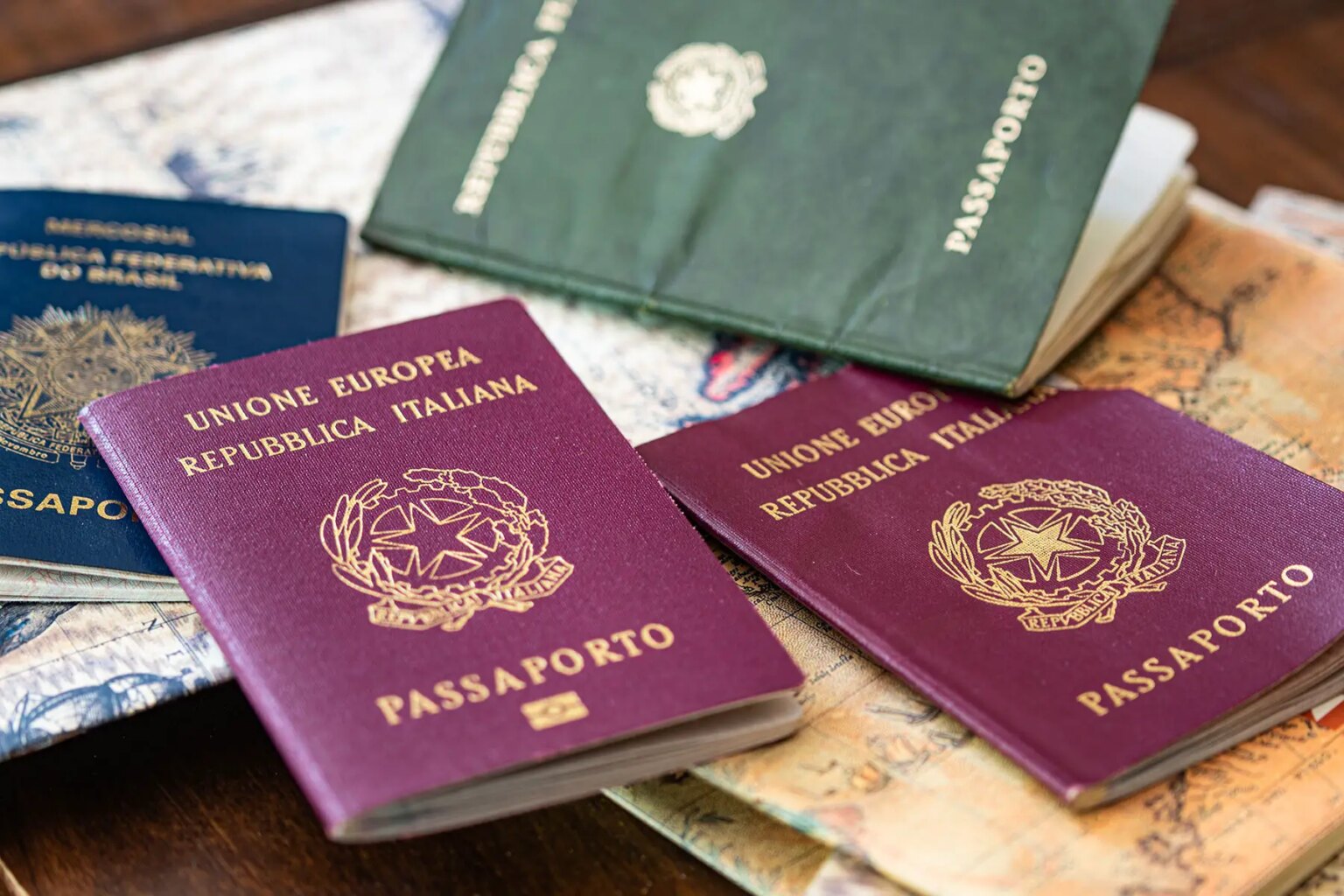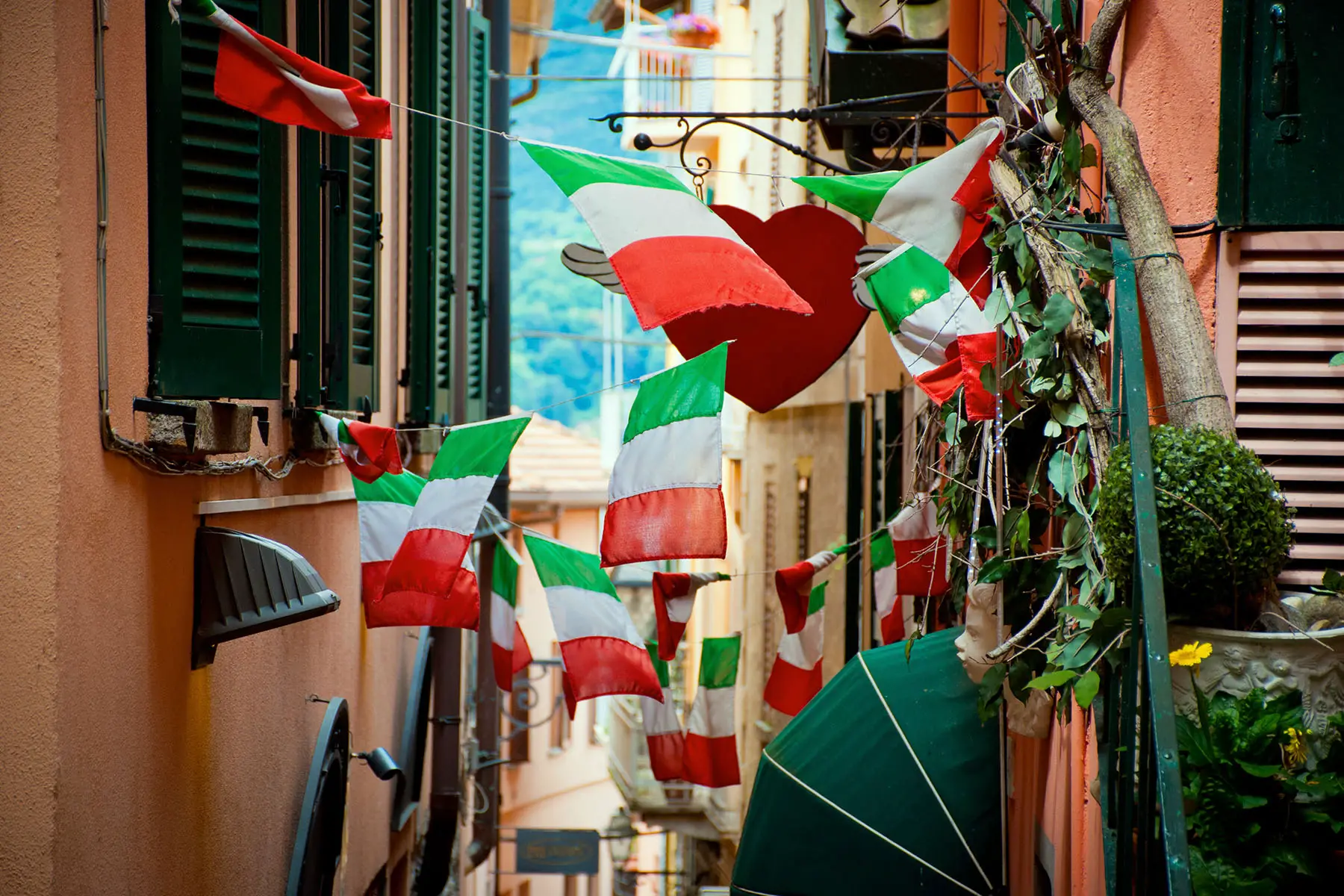With Italian citizenship in your pocket, an Italian passport isn’t far off. This travel document is one of the most sought-after passports in the world and will make it (much) easier to travel to and from Italy.
Find out why you need one and how you can apply for it in the following sections:
Moving2Italy
When relocating to Italy, get expert help from Moving2Italy on taxes, work permits, and setting up a business. They also provide personalized support for immigration, social security, and residence, helping you navigate your new life abroad. For assistance with fiscal and immigration matters, contact Moving2Italy.
Passports in Italy
The Ministry of Foreign Affairs and International Cooperation (Ministero degli Affari Esteri e della Cooperazione Internazionale – MAECI) is the government body responsible for passports in Italy.
The Italian passport (passaporto) is one of the benefits of Italian citizenship. This document enables you to travel the globe as a European Union (EU) citizen, which, in many cases, will mean visa-free travel.

Like other EU member states, Italy issues biometric passports. The standard passport is a small burgundy-red 48-paged booklet with the emblem of the Italian Republic in the center of the cover. It contains a microchip with your biometric information, including your photo, fingerprints, place of birth, other personal information, signature, and unique passport number.
In addition to regular passports, there are also:
- Collective passports (passaporto collettivo) – available for groups that contain 5–50 people, who travel together for cultural, religious, sporting, tourist, or international significant reasons. The passport is valid for four months and can only be used on one trip. The group leader must have a valid standard passport.
- Emergency Travel Documents (documento di viaggio provvisorio – ETD) – if your standard passport is lost or stolen abroad, you can apply for an ETD. These are typically valid for a single return trip to Italy or your place of residence.
- Travel documents for stateless persons, aliens, and refugees (documenti di viaggio per apolidi, stranieri, e rifugiati) – these documents are equivalent to Italian passports and are issued to people who are unable to get an actual passport (e.g., because they are stateless)
Benefits of getting an Italian passport
Although you don’t need a passport to enjoy the gains of citizenship in Italy, there are additional benefits to getting one. These include:
- Leaving and re-entering Italy as often as you’d like without any restrictions
- Being able to travel the world as an Italian and EU citizen. You can move within the EU and European Free Trade Association (EFTA – Iceland, Liechtenstein, Norway, and Switzerland) region using just an ID card (Carta di Identità Elettronica – CIE), but you will need a passport to travel outside that area.
- Traveling without a visa to 189 countries across the world (although you might need a visa on arrival)
- The option of dual citizenship and a second passport if your home country permits it
Freedom-wise, Italy ranks 4th on the 2023 Henley Passport Index, a global ranking scale that measures the travel freedom of passports.
Who can get an Italian passport?
Eligibility for the Italian passport is based on citizenship. Once you have obtained your new nationality, you can apply for a passport.

Most internationals will get Italian citizenship through naturalization. For EU/EFTA nationals, that means four years of residency. For non-EU/EFTA citizens, that means 10 years of residency including five years as a permanent resident.
That said, there are also fast-track routes. For example, you can usually apply after two or three years in Italy if you are married to or in a civil partnership with an Italian national.
Other routes to citizenship include through descent and, in some cases, through birth, depending on the nationality of your parents.
How to apply for an Italian passport
You can apply for a passport in Italy and abroad.
If you are in the country, you can go to the police headquarters (questura) or apply online through the police passport portal. In case of the latter, you’ll still need to make an appointment at a police station to submit your fingerprints. The fingerprinting requirements are waived if the applicant is a minor child under the age of 12, or the applicant has a physical impairment (demonstrated by a medical certificate).
Documents you’ll need to provide:
- Completed application form, which is different for adults and children (forms in Italian)
- Valid ID (e.g., your existing passport, Italian ID card, birth certificate, or driving license)
- Two passport photos that meet the required standards
- Proof of Italian citizenship (e.g., citizenship papers)
- Parental consent form (in Italian) if the applicant is aged under 18
Italian passports typically take between 1–6 weeks to arrive. You can pay for registered home delivery, which is currently just below €10. Otherwise, you can collect it from your local post office.
Applying for an Italian passport abroad
The application process for getting an Italian passport outside the country is much the same as it is when applying in Italy. You can apply through your local Italian embassy or consulate.
How much does an Italian passport cost
Fees depend on the type of passport you’re applying for.

Current passport fees are:
- Standard passport – €116 (consisting of €42.50 for the passport and €73.50 for the administrative stamp)
- Replacement passport – €73.50
- Temporary passport – €5.20
- Collective passport – €5.50 per person
- Travel document for stateless persons, aliens, and refugees – €42.22
If you are one of the following, you are exempt from paying passport costs:
- Applicants who emigrated for manual work, small-scale trade, or to join their family members who emigrated for the purpose of work
- Those residing abroad who need consular repatriation to do voluntary military service
- Receivers of social benefits
- Religious leaders or missionaries (proven by a declaration from the superior)
Dual nationality and second passports in Italy
Italy has permitted dual citizenship since 1992. That means you do not have to give up your original nationality in order to get the Italian one. There are no limits on the number of passports you can hold.
That said, some countries (e.g., the Netherlands) do not permit this. If you want to become an Italian citizen and your home country does not allow dual nationality, you will have to rescind your existing one. You can check with the authorities in your home country for rules and processes.
Renewing or replacing an Italian passport
Passports are valid for:
- Ten years if you are an adult over 18
- Five years if you are a minor aged 3–18
- Three years if you are a minor aged 0–3
Expired documents cannot be renewed. That’s why you must renew your passport around 3–6 months before the expiration date. Passports that are badly damaged (e.g., water damage) must also be replaced with a new one.

The process and costs are the same as those when you are applying for an Italian passport for the first time.
Lost or stolen passports in Italy
If you permanently misplace your passport or it’s stolen, you must report it to the local police or the nearest Italian embassy or consulate as soon as possible. After that, you can apply for a replacement passport, or an emergency travel document if you are stranded abroad.
For the emergency travel document, you’ll need to provide two passport pictures along with any ID that you have on you (e.g., a driving license, Italian tax number, or health card). The document acts as a temporary passport and is only valid for your return trip to Italy. Upon your arrival in the country, you can apply for your replacement passport.
Useful resources
- Ministry of Foreign Affairs and International Cooperation – official government website of the Ministry responsible for issuing passports
- Travel Safe (Viaggiare Sicuri) – website by the Ministry of Foreign Affairs and International Cooperation with information for Italian citizens looking to travel safely abroad
- State police (Polizia di Stato) – official website of the Italian State Police website that has information on Italian passports





